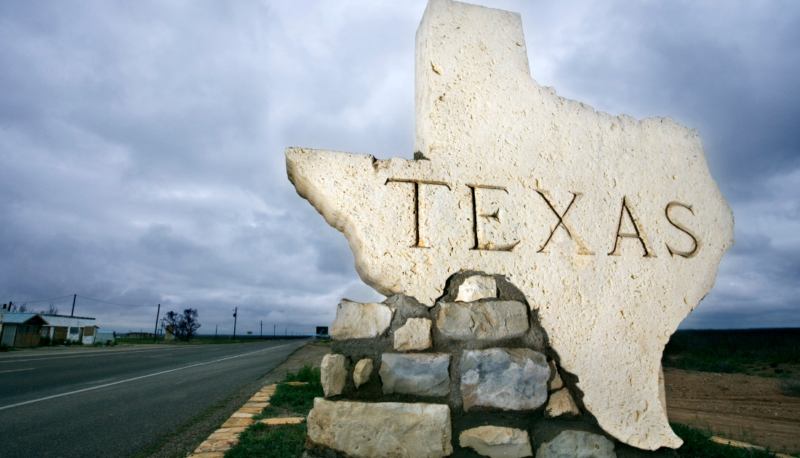Texas held its primary on March 1st, officially beginning the 2022 midterm election season. With many new restrictive voting laws in effect across the country, this early primary provides voting rights advocates the opportunity to see what they might be up against this season.
The State of Voting Rights in Texas
Over the course of 2021, 19 states passed 34 bills restricting voting. Since the start of 2022, 96 bills introduced in 12 states could also make it harder to vote. The pace of introducing and passing restrictive voting legislation has greatly increased from previous years.
Over the spring and summer of last year, Democratic state lawmakers made multiple attempts to kill voter suppression bills, even going so far as to leave the state to prevent a voting quorum. Additionally, after SB1 finally passed, state election officials expressed concern about the tight timeline between passage and implementation. They repeatedly asked for more time to educate their staff and voters on the new stipulations. They asked to either delay the law going into effect or the primary date. Neither request was granted.
How this Anti-Voter Bill Hurt the Texas Primary
The new restrictions and lack of public education caused confusion. They banned drive-through voting and 24-hour polling locations and had new ID requirements for vote by mail. Texas had already allowed only people over 65, who are sick, have a disability or meet a limited set of requirements to vote by mail. SB1 now requires an ID number or the last four digits of the voter’s Social Security number on both the ballot AND the envelope. Additionally, the numbers provided must match that on the voter’s original registration form, which is held by the county. In Harris County, the new restrictions proved so confusing that as of Feb. 26, the county election office said said 29% of the over 37,000 mail-in ballots had been flagged for rejection.
SB1 did create an online vote tracking website and time to allow voters to fix their mail-in ballots. Depending upon the issue, voters can change the information via the online tracker, go into their local election office, or have their mail-in ballot thrown out and vote in person. Considering the population allowed to vote by mail, though, these options can be onerous.
The final results for Harris County showed nearly 7,000 rejected ballots. All but 31 rejections were because of ID requirements. While the final state total of rejected mail-in ballots statewide is still being calculated, 16 out of the state’s 20 counties had 18,742 rejected mail-in ballots. To put that in context, in the 2020 presidential election, the total number of ballots rejected in the state was 8,304.
Despite Trump’s Big Lie, the 2020 election was incredibly safe and accessible. Because of pandemic restrictions, most states had expanded voting access. What we are seeing now is a backlash from conservative lawmakers seeking to suppress the vote and create complications at the ballot box. Constantly changing voting guidelines can confuse and frustrate voters. If county election workers are not educated nor have enough money for public education programs, voters will incorrectly fill out their ballots. They then run the risk of their votes not being counted.
Worse yet, SB1 even imposes criminal penalties on people who incorrectly assist voters at polls or through vote by mail. This frightening provision will greatly decrease those willing to help voters. It will also further suppress votes and possibly cause people to go to jail for making a simple mistake.
What’s Next for Protecting Voting Rights – in Texas and elsewhere?
So much is at stake as we move forward with the 2022 midterm elections. The new restrictive voting laws nationwide, not just in Texas, will have a possibly devastating impact on voting.
On Thursday, March 17, the House Administration Committee held a hearing titled “Voting in America, Ensuring Free and Fair Access to the Ballot in Texas” that featured testimony from multiple expert witnesses with first-hand knowledge of the situation on the ground in Texas. From this hearing, and from troubling reports coming from across the country on similar voter suppression efforts, it is abundantly clear why we need federal standards for voting in the United States.
Keep an eye on People For’s channels for opportunities to take action on this critical issue.
